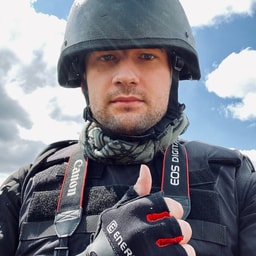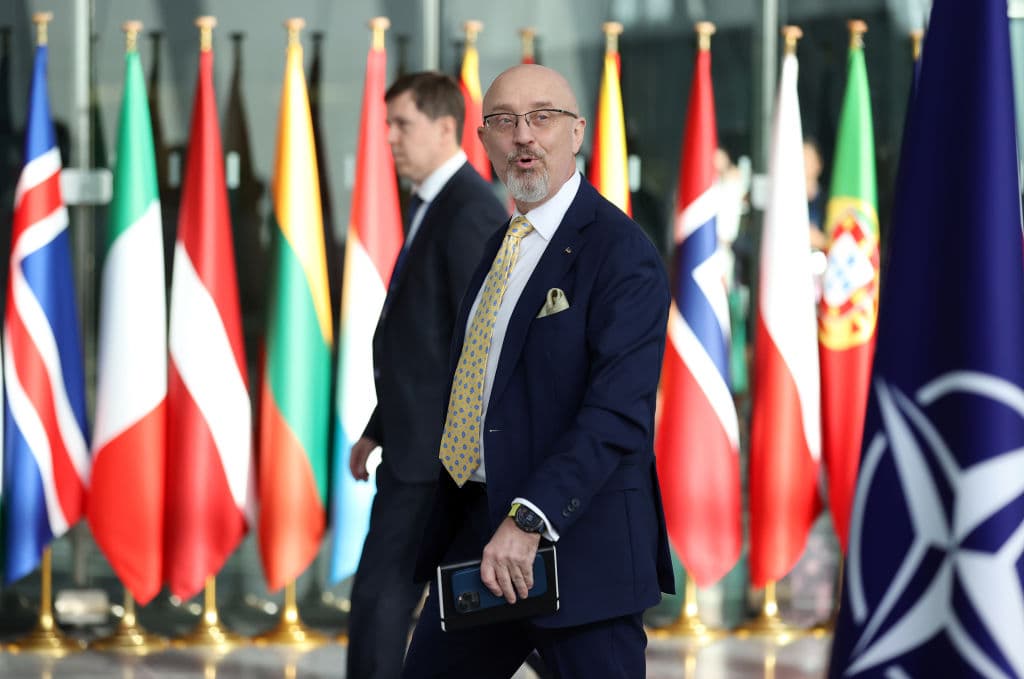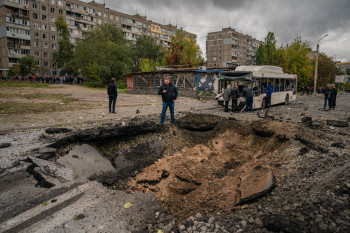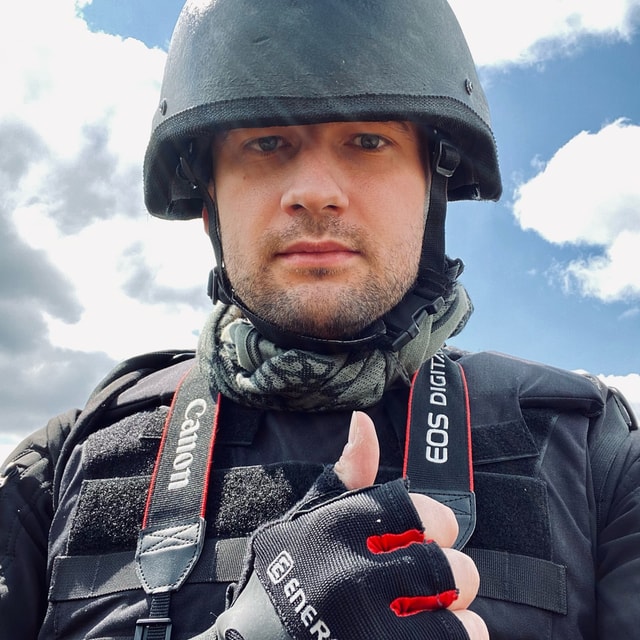Editor’s Note: This interview has been edited and condensed for clarity.
BRUSSELS — Oleksii Reznikov, Ukraine’s defense minister, was in an excellent mood after several intense days of closed-door meetings at the NATO headquarters.
The Alliance hosted a meeting of defense ministers of all 30 member nations on Oct. 12-13 in Brussels. The so-called Ramstein group of 50 nations providing assistance to Ukraine amid Russia’s war also met for its sixth summit.
Ukraine was at the very center of attention in the NATO corridors, again.
Just days after Russia launched massive missile attacks against critical civilian infrastructure in Ukraine, Reznikov’s mission was to motivate the West to step up support and help Kyiv build an air defense shield.
Ukraine has been asking the West to “close the sky” over the country, by either declaring a no-fly zone or providing advanced air defense systems, since the early days of Russia’s full-scale invasion. But neither of the requests has been fully satisfied.
The call for a “no-fly zone” was rejected, as it would directly involve NATO in the war – an idea the West has uncompromisingly opposed.
As for air defense systems, Ukraine’s backers have indeed been supplying them, albeit at a pace too low and in quantities too small to make a real difference. According to President Volodymyr Zelensky, Ukraine has only about 10% of the air defense it needs.
But following Russia’s relentless missile strikes which killed at least 20 people, injured over 100, and damaged vital public infrastructure across Ukraine, it appears positions have shifted.
Providing air defense systems takes time and money, but many countries seem to be genuinely ready to finally give Ukraine the air defense equipment it needs to save lives, and as soon as possible. Some, such as the U.S., France, and Spain, have already made announcements about some of the upcoming supplies.
“The political decision on air defense has been made,” Reznikov told a small group of Ukrainian journalists in Brussels.
The Kyiv Independent attended the meeting.
The Ramstein group, including the U.S., said it’s ready to work on bolstering Ukraine’s air defenses. Are new and better air defense systems to Ukraine forthcoming?
Oleksii Reznikov: Nearly a month and a half ago, we were thinking about what else we could request from our partners to make our air defense stronger. It’s about things they have on hand, things they can provide us without any problems.
Let me put it this way — we have picked a system and started figuring out if getting it was realistic. I’ve made an official request to my American colleague Lloyd Austin. Here during the Ramstein meeting, we finally discussed this at a high level.
What we have heard is that this option is possible. The most important thing is that the American side voiced a message on the necessity of bolstering Ukrainian air defense as soon as possible. It’s not about only the NASAMS and the IRIS-T, which are already known. In the coming weeks, we’ll see if it all works out and if certain nations are able to take on these liabilities, then we can announce what (this new air defense system) is.
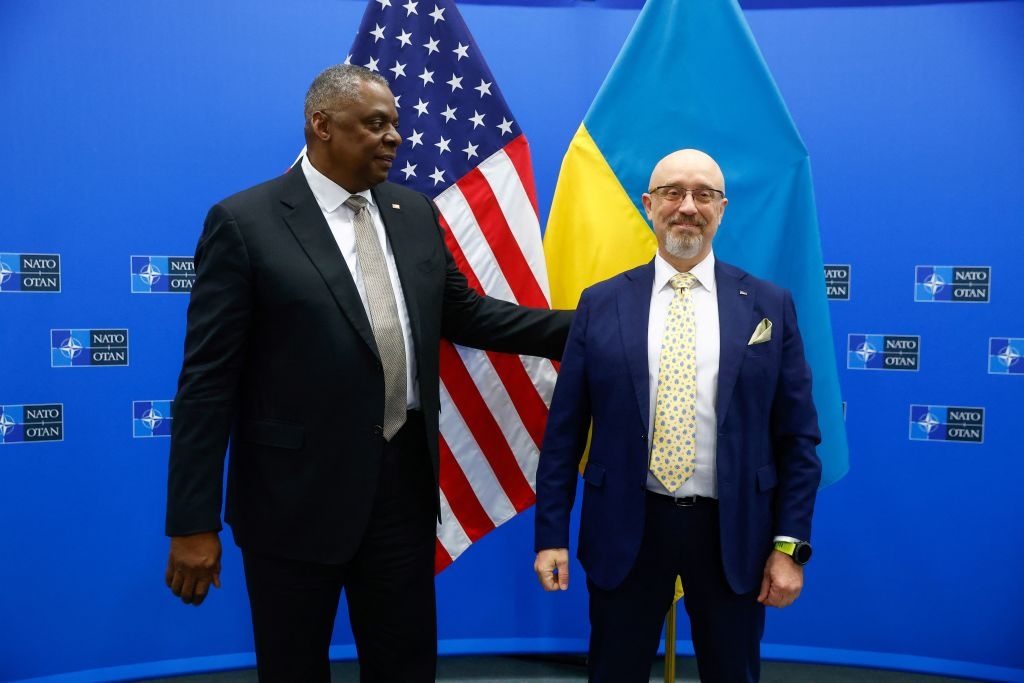
The Ramstein group ministers keep telling me two things: “You are defending not just yourself but the entire democratic world.” These are not just empty words. And the second thing: “We’re reassuring you we’ll be by your side as long as it takes, in the short and the long run.”
We’re also discussing the production of new weapons and munitions. They ask me what we will need in six, eight, 12 months, they are ready to keep rendering assistance until the very end of the war. They really perceive Ukraine as the eastern shield of Europe.
What’s even more interesting is that on the sidelines, ministers were saying: “The Madrid summit designates Russia as a direct threat to NATO, and Ukraine demonstrates the best expertise in repelling the Russian military, deterring and defeating it — what else could be a better reason to admit Ukraine in NATO?”
It was a very pleasant thing to hear. So far, it’s about discussions on the sidelines, but, you know, it’s a future decision in the making.
How long does it take to train Ukrainian air defense operators?
Oleksii Reznikov: Our specialists are currently undergoing a training course for NASAMS; Immediately after training for the IRIS-T training was completed, the system crossed the Ukrainian border.
It takes time — weeks, not months or years, of course. The same goes for every weapon and equipment type we get from the West.
I’d like to stress that our partners think highly of our military personnel capabilities, as they master complex weapon systems faster than it’s expected in manuals.
Relatively speaking, a training course for a 155-millimeter howitzer lasts three months. Our guys finish it within three weeks, as instructors declare them ready to use the weapons in combat.
Some 10,000 Ukrainian troops trained by the U.K. are now getting back home to join the fight?
Oleksii Reznikov: Yes.
The British training program that many other nations also joined envisaged 30,000 prepared Ukrainian troops. They are getting basic training — something we need to be able to do in Ukraine but can’t. We all remember Russian missile attacks against the Yavoriv training center (in which many troops were killed).
Britain has led a helping hand. They provide recruits with everything — lodging, nutrition, instructors — and their training is adapted to our Ukrainian military regulations and standards. And all of them get full body armor gear donated by our partners. It’s basic training.
10,000 troops are about to complete the training. And the next 10,000 will follow immediately.
We have also discussed new programs that could unfold in training centers in Europe — at the scale of battalions. We can send 600 troops and let them practice their interconnections, command and control procedures, maneuvers, and decision-making.
The next level is at the brigade scale. Our command units would be able to practice tactical decision-making using simulator programs provided by our Western partners.
What about Israel? Is it part of the Ramstein meetings? Is it possible to finally get air defense systems from Israel?
Oleksii Reznikov: Israel is represented in the discussions, yes.
Providing Ukraine with defense aid, especially lethal weapons, requires a political decision. Unfortunately, so far, we have not seen readiness from the Israeli side to make such a political decision.
We’re working on it, but as of now, I’m not optimistic enough to say we can get weapons from Israel tomorrow.
Could new air defense systems bring Russian missile strikes to an end?
Oleksii Reznikov: Let’s be realistic — not a single air defense system can guarantee 100% efficacy. There should not be any illusions regarding such weapons in the U.S., Israel, or elsewhere. But we can make intercepting missiles more probable.
Right now, our glorious air defense forces systemically intercept up to 50% of Russian targets. If we can make it 60%, or 70%, or 80%, that would be great.
The next month will give us answers to questions about what, when, and how. But we have entered this new epoch — the political decision has been made.
I am experiencing so many positive emotions — you won’t believe how strong the support for Ukraine is. I assert that the age of Ukraine-centrism has begun!
______________________________________________
Note from the author:
Hello! My name is Illia Ponomarenko, the guy who wrote this piece for you.
I hope you found it useful and interesting. I work day and night to bring you quality stories from Ukraine, where Russia is waging the biggest war in Europe since WWII. My little homeland, Donbas, is now the site of the worst fighting. We are helping to keep the world informed about Russian aggression. But I also need help from every one of you — to support Ukrainian wartime journalism by donating to the Kyiv Independent and becoming our patron.
Together, we can help bring peace to Ukraine.
